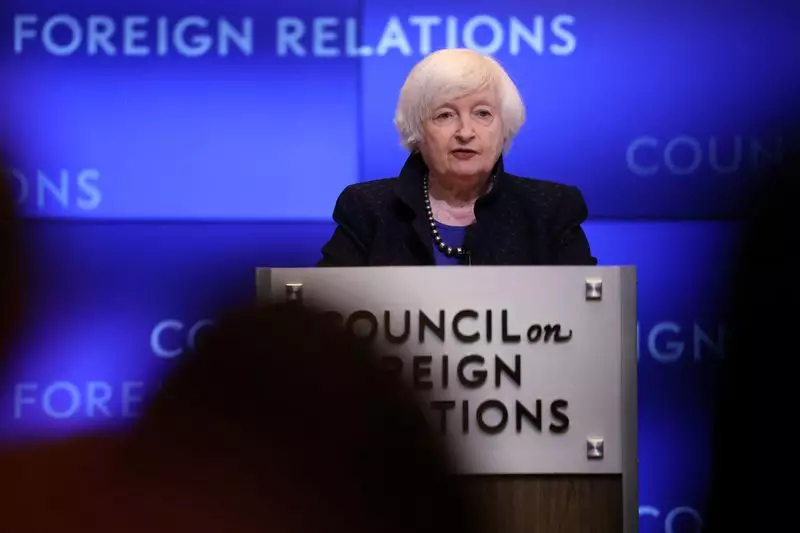In the aftermath of the COVID-19 pandemic, U.S. Treasury Secretary Janet Yellen is poised to articulate a defense of the Biden administration’s economic policies during what has been one of the most tumultuous periods in recent history. As she prepares to step away from her role, Yellen emphasizes the critical nature of the stimulus measures, asserting that such interventions were instrumental in ensuring a swift and robust economic recovery. Central to her defense is the argument that the administration’s substantial financial assistance—including direct stimulus checks and enhanced unemployment benefits—played a crucial role in preventing mass job losses and fostering economic stability amid widespread uncertainty.
Yellen highlights that the swift deployment of funds facilitated consumer spending, thereby breathing life back into a beleaguered economy. The Biden administration’s aggressive economic policies purportedly averted what could have been an unprecedented spike in unemployment and sustained economic contraction. Drawing on data, she notes that while inflation surged globally as nations grappled with the pandemic’s fallout, the U.S. economy demonstrated resilience, managing to rein in inflation rates more quickly compared to its wealthy counterparts.
While acknowledging the realities of inflation, which Yellen concedes may have been exacerbated in part by stimulus spending, she argues that the policies enacted prioritized immediate relief and recovery over a narrow focus on curtailing price increases. The key question posed by Yellen is whether a rigid policy aimed solely at maintaining low inflation would have been worth the potential fallout: a significant rise in unemployment and longer-term economic degradation. Critics of her stance may argue that this approach could signal a dangerous precedent, where inflation becomes an acceptable collateral for job creation. Conversely, Yellen’s perspective seems rooted in a pragmatic acknowledgment of the interconnectedness of inflation and employment, suggesting that hasty measures to combat rising prices could result in adverse long-term outcomes for both the economy and American households.
The statistics presented by Yellen underscore the success of the administration’s approach. With the U.S. unemployment rate dipping below 4%—a threshold not seen since the 1960s—it’s evident that government actions largely mitigated the erosion of skills and long-term unemployment that plague economies in recessions. A view grounded in economic history suggests that without the interventions, the unemployment rate could have soared to troubling levels, effectively leaving millions of Americans unable to meet basic financial obligations.
Despite the seeming success of the recovery, Yellen warns that structural issues persist. She describes a landscape where the path to achieving a stable middle-class life is increasingly fraught with obstacles for many families. This acknowledgment of ongoing challenges sets a framework for her advocacy of what she describes as “modern supply-side economics.” Unlike traditional supply-side approaches that often prioritize deregulation and tax reductions, this model emphasizes holistic investments in infrastructure, human capital, and innovation.
By directing attention toward these foundational elements, Yellen advocates for a long-term vision that seeks to elevate the overall economic landscape rather than merely reacting to immediate crises. This approach calls into question the sustainability of growth achieved merely through stimulus; it posits that lasting recovery will necessitate a commitment to strategic investments that can foster resilience and equity in the job market.
Reassessing Economic Policy in a Post-Pandemic Era
As the country emerges from the pandemic, Yellen’s insights offer valuable lessons regarding the balance between immediate economic relief and long-term policy strategies. Her upcoming speech represents not just a defense of past actions but also a call to action for future economic policy considerations. Moving forward, policymakers must grapple with the dual imperatives of promoting economic recovery while simultaneously addressing the more profound, underlying issues that have impacted American families.
In essence, Yellen’s reflections serve as a reminder that while immediate interventions were vital in galvanizing the economy, the quest for a truly equitable and sustainable growth trajectory will demand more than just reactive fiscal measures. Instead, it will necessitate a comprehensive understanding of the economic landscape and a commitment to building a robust foundation for all citizens moving forward.

